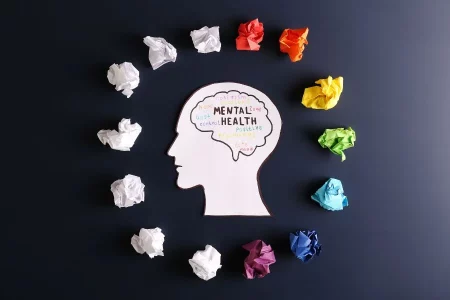During this unprecedented time, it is more important than ever to foster good mental health. The COVID-19 pandemic has drastically changed the way we live, leaving many feeling isolated and scared. Fortunately, there are several steps you can take to ensure that your mental health remains in good shape during this period of quarantine. This comprehensive guide will provide a clear path for how to take care of your mental well-being during this uncertain time. From activities to help manage stress and anxiety to strategies for staying connected with family and friends, this guide will provide the necessary tools and information you need to ensure your mental health is taken care of. Now more than ever, it is important to prioritize your mental health and this guide provides the perfect roadmap for doing just that.
Understand your emotions
The first step to fostering good mental health is to understand your emotions. During this unprecedented time, you may notice yourself feeling sad, depressed, angry, or anxious. It is important to understand what these emotions mean and how to best manage them so they do not become overwhelming. For example, if you notice yourself feeling sad, depressed, or emotional, this may be a sign that you are experiencing heightened levels of stress and anxiety. You may also notice that your sleep is affected. Symptoms like these are common during times of high stress. There are several ways you can deal with these emotions. First and foremost, try to understand why you are feeling this way. What is triggering these feelings? Once you have identified what is causing your emotions, you can then work towards managing them.
Also Read – The Refreshing World of Isotonic Drinks: A Comprehensive Guide to Isotonic Drink Powders
Create a daily routine
Routines have been proven to foster good mental health. During times of uncertainty, it is especially important to establish a routine and stick to it as much as possible. Having a routine not only gives you something to look forward to, but also helps you feel more in control of your life in such uncertain times. The best way to establish a routine is to write out what you would like it to be. What times of the day would you like to schedule each activity? What days of the week would you like to do these activities? Be as specific as possible when creating your routine. Once your routine is written, it is important to stick to it as much as possible. This is not an excuse to be lazy or to ignore your emotions. Rather, it is a way to help you feel more in control of your life and to focus on what you can control.
Maintain healthy eating habits
Being healthy is important at all times, but especially during uncertain times. Having healthy eating habits allows you to focus more of your energy on dealing with stress and anxiety, as well as helping you sleep better. During times of uncertainty, it is important to avoid foods that are high in refined sugar, as well as foods that are high in preservatives. These types of foods are notorious for triggering feelings of anxiety and stress. For the best eating habits, try to eat a balanced diet that consists of roughly 50% carbohydrates, 25% proteins, and 25% fats. This will provide you with the nutrients you need, along with the energy you need to deal with daily life during these times.
Get plenty of sleep
As mentioned above, when you are stressed, hormones such as cortisol are released, which is meant to help you manage that stress. Unfortunately, this also has negative effects on your body, such as lowering your immune system and making you more prone to gaining weight. Getting plenty of sleep is one of the best ways to combat these effects of stress and improve your mental health. By getting 7–9 hours of sleep per night, you can decrease your stress, improve your immune system, and manage your emotions better. There are many different ways to improve your sleep. These include removing any distractions from your room, taking a bath before bed, and avoiding caffeine and sugar before bed.
Take time for yourself
Taking time for yourself is one of the best ways to manage stress and anxiety. It allows you to take a break from the craziness of daily life, which is helpful for managing your emotions and stress levels. There are many ways to take time for yourself. Some suggestions include going for a walk, getting a massage, reading a book, or meditating. The trick is to find something you enjoy that also gives you some time to yourself. Taking time for yourself is especially important when you are feeling overwhelmed. If you are feeling stressed or anxious and want to take some time for yourself, but are not sure how to do so, one of the best ways is to visualize a relaxing scene. You can visualize yourself sitting on a beach, floating in a pool, or anywhere else that makes you feel relaxed and at ease.
Exercise
Exercising is one of the best ways to take care of your mental health. It allows you to feel more in control of your emotions and can help you manage stress and anxiety. Exercise may also help you feel better when you are sick. There are many ways to exercise. Some of the best forms of exercise for your mental health include yoga, tai chi, and meditation. You can also try aerobic exercise, strength training, or anything else that you enjoy and feel comfortable with. What is interesting is that your physical health and your mental health are very much connected. While you are exercising, you may find that you feel more confident or even less anxious. You may also find that it is easier to fall asleep after exercising.
Reach out to people
A great way to deal with your emotions and take care of your mental health is to reach out to others. Talking to others, as well as finding support, can be incredibly helpful in dealing with stress and anxiety. Not only does it allow you to get your emotions out, but it also allows you to connect with others and feel less alone during these uncertain times. There are many ways to reach out to others. You can call your friends or family, meet up with them, or even message them on social media. You can also join support groups on social media or attend mental health support groups in your area.
Find ways to stay connected with family and friends
If you are in a situation where you are being quarantined and are unable to leave your house, finding ways to stay connected with family and friends can help you manage your emotions and take care of your mental health. There are many ways to do this and many of them do not require any outside input. For example, you can bring pictures of loved ones into your room so you can look at them. You can also bring items that make you happy or calm into your room. This may include a journal, a blanket, or other items. You can also try journaling, meditation, or listening to music to help you feel less alone and calm your emotions. If you are unable to leave your house, you can also try to video call with loved ones or even friends. This can help you feel less alone and remain connected with those you care about.
Manage stress and anxiety
During these times, it is important to keep a watchful eye on your stress and anxiety levels. It is also important to know what to do when those levels get too high. There are several ways to do this, including journaling, breathing exercises, and visualizing a peaceful scene. Once your stress and anxiety levels get too high, it is also important to take action by doing something that will help you calm down. It is recommended that once levels of anxiety and stress get too high, you take a break from social media. The blue light of the screen has been shown to increase anxiety and stress levels in the body. By taking a break, you can allow your body to calm down and relieve some of the pressure that has built up.
Also Read – How to Foster Good Mental Health During Quarantine: A Comprehensive Guide
Seek professional help if needed
If you are feeling as though your mental health is significantly declining, it may be a good idea to seek professional help. This can be incredibly helpful in regaining your mental health and feeling less stressed and anxious. It is important to know your resources, especially if you are in a situation where you are unable to leave your house. This can be a great way to get help if you feel as though things are getting too difficult to handle. There are many different types of professionals you can see. There are therapists, psychiatrists, and psychologists. There are also many different types of therapy, including cognitive behavioral therapy (CBT), mindfulness therapy, and dialectical behavioral therapy (DBT). It is important to know what each type of therapy is and what it focuses on, as well as what type of professional you feel is best for you.



